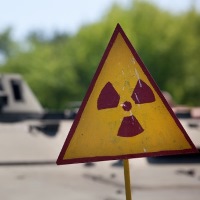
Text below as published in the Huffington Post.
It is that season again. North Korea is threatening the United States with nuclear weapons and ballistic missiles. Since they have both, they cannot be ignored.
So far, the Obama Administration is responding in the right way. But it is important to proceed cautiously because as long as we keep playing this threats-tests-sanctions-containment game, we risk miscalculation and massive loss of life.
First, we have to do everything we can to show the North our intent. That is deterrence. Exercises with South Korea, fighter and bomber flyovers, and ship re-deployments are good moves. Making sure that the Chinese know our intent to respond "kinetically" to certain provocations -- and communicating our intent to the North -- should be part of our deterrent posture.
Second, for the sake of an effective military response, should it come to that, and to improve the credibility of our deterrent more generally, we should make sure our treaty allies in Seoul, Tokyo, and Canberra understand our determination to honor our alliance commitments. In Seoul, particularly, we need to make sure that we do not find the new government there on our "right flank," questioning the stiffness of our resolve. In both South Korea and Japan, there has been recent open discussion of the wisdom of their non-nuclear weapons policies. We must leave no doubt about the dependability of our nuclear umbrella. Nearly as important, we should communicate this determination to our friends in Southeast Asia where America's long-term commitment to the Asia-Pacific region is always a topic of speculation.
Third, as painful as it is to say, we should be open to acceptable ways to return to the negotiating table. Yes, yes, we cannot rush back breathless in the face of threats from the North, and there are serious concerns about the value of agreements with the North, but there is no better alternative to reducing and managing the threat from North Korea than negotiated arrangements that constrain their capabilities and rhetoric. That said, we should not get into a protracted negotiation with the North Koreans unless we have a clear and open commitment from them that their nuclear weapons program is once again on the table for abolition -- their most recent, solemn declarations to the contrary notwithstanding. That need not be a pre-condition to discussions about discussions, but if it is not part of serious talks, we risk legitimizing the North's nuclear weapons status. That is precisely what they want and what would unsettle our strategic vision for the region.
Fourth, the road out of the current re-current crisis mode runs through Beijing. This, however, does not mean that we should sub-contract the problem to the Chinese. This is the most urgent security issue in Asia right now, and China is our competitor for influence throughout the region. We can ill-afford to "let Beijing do it" even if they were willing. Our interests overlap in this case, but they are not congruent. The last thing the Chinese want is either a greater American military or naval presence in Northeast Asia or refugee flows from a collapsing North Korean government. We want Beijing to urge the North to the table in the proper frame of mind, using influence only they have. That means we have to be clear that containment is too passive a word to capture the policy of the international community toward the North going forward, should the North be unconvinced of the wisdom of negotiations. There should be ambiguity about the details of a more focused approach than we have adopted in the past, but not about its purpose.
Fifth, we should look for an opportunity to impress upon the North Koreans that the transfer of sensitive nuclear material, experiment or technology to any other country or group is unacceptable to the United States, in light of our vulnerability to nuclear terrorism. This will not be easy to do since the sale of a plutonium production reactor to Syria six years ago, which the Israelis flattened, cost them nothing and presumably won them significant hard currency. We will have to persuade Pyongyang that if they do such a thing again, the outcome will be more painful for the North.
Finally, all those principled and helpful critics at home who cannot wait to charge appeasement or blackmail if they sense that the administration is at some point exploring negotiations with North Korea should chill, and cut the diplomats some slack. If the North Korean threat is not managed carefully, we could have a war in which a lot of people die.



